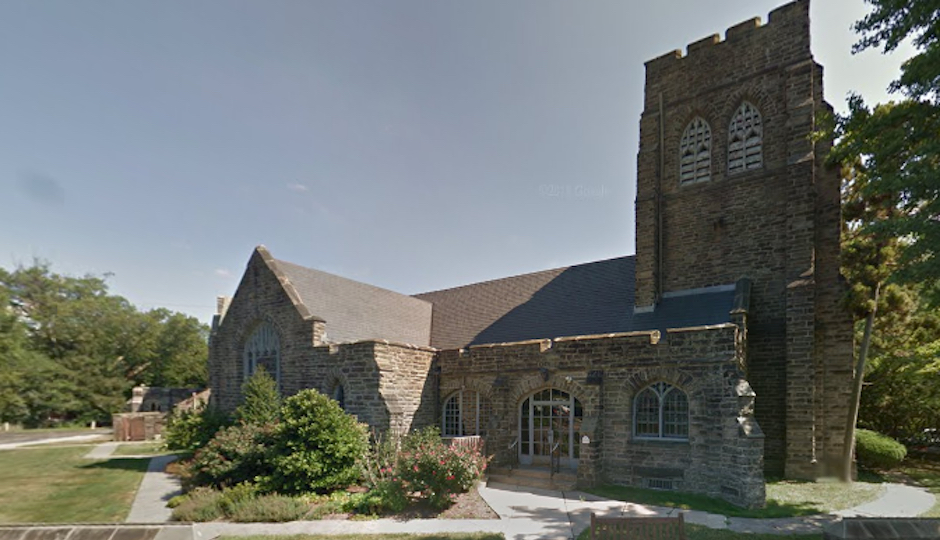Dispatch From a Philly Church: Trying to Make Sense of the Paris Killings
Other than during summer, when the Jersey Shore tempts even the most God-fearing families to its surf and sand, the parking lot at Overbrook Presbyterian Church is generally pretty full; a couple of times each year — Easter Sunday and Christmas — it is positively overflowing.
Yesterday’s service had no official significance, but less than 48 hours after ISIS-sponsored militants took to the streets of Paris, committing cold-blooded murder at least 129 times, the parking lot was more reminiscent of one of those holy days than your average Sunday morning.
But the mood inside wasn’t like at those holiday services. Oh, the children’s choir with their angelic and uplifting voices sang as scheduled — For the joy of human love, brother, sister, parent child; Friends on earth, and friends above, for all gentle thoughts and mild — and operatic soprano Iris Fairfax delivered a powerful rendition of Bach’s “My Heart Ever Faithful,” but heavy hearts were on display throughout the pews, as they have been so many times after tragedies that have shaken us to our core.
Back in 2001, Pastor Drew Mann wasn’t at Overbrook, where he’s now serving as interim pastor. He was the pastor of a different church in a different place. And on September 11th of that year, as the terrible news and images poured out through TV screens, he went to the church, unlocked the doors, and waited for people to come.
“We didn’t do an email blast back then,” Mann told the Overbrook congregation on Sunday. “We just turned the lights on.” That church had a capacity of about 900 people, but Mann says that more than 1,200 showed up on that Tuesday night in 2001.
The crowd at Overbrook wasn’t nearly that large. It’s a much smaller church. And Paris hasn’t affected us on the same scale as did 9/11, but make no mistake, it did affect us. We share the grief of those we see on TV, read about in the newspaper, hear about on Facebook. And there’s also the dreadful, more selfish thought: It could happen here. Or, perhaps more accurately, it will happen here. There’s little we can do to stop it.
By Friday of last week, Mann had already written his Sunday sermon. He was going to speak about the biblical story of the widow who gave a donation of two small coins that were worth almost nothing. (Long story short: She gave little, the rich gave a lot, and Jesus preached that her donation actually meant more because she didn’t have it to give.) But he knew he had to scrap that sermon. “And it was brilliant,” he joked from the pulpit, managing to elicit some laughter.
Instead, Mann talked about — what else? — Paris.
“I don’t want to talk about Paris,” he said. “But I have to talk about Paris, because Paris has happened so many times that I’ve lost count.”
Mann made clear that he wasn’t just talking about the modern day Islamic militants who terrorize the world today.
“Some of us here may be old enough to remember a Paris that occurred just weeks before Christmas in 1941,” he said, referring to the 2,403 Americans who died at Pearl Harbor. Mann spoke of other mass killings — some in the name of war, some the result of cruelty and madness — including the Holocaust, Pol Pot, spree shootings, Wounded Knee, and others.
“How many Parises can you think of?” he asked. “We struggle to remember them simply because of the sheer number of them. There are so many Parises that we can no longer claim that they are aberrant human behavior. They have become the norm.”
Indeed they have. As news about Paris began to spread on Friday night, I took to — where else? — Facebook to see what people were saying (lots of sorrow, lots of hate, lots of misinformed people) and to say some things myself. I sent out prayers to the victims and their families — and to the peace-loving Muslims who want nothing to do with any of this insanity — but also to the “brave people who will hunt down the perpetrators and their sponsors and send them to hell.”
When something like this happens, we want blood, we want revenge. Or at least I do. In his sermon, Mann addressed this point, too, using a biblical quote known to even the most church-hating heathen: Vengeance is mine … sayeth the Lord.
But does that mean that we are to invoke another well-known biblical concept, turn the other cheek? No, says Mann.
“When we do what needs to be done, it must not be out of vengeance,” he said. “That will just lead to more chaos. But we are ordered to stand up against evil wherever we find it.”
And so we must.
Follow @VictorFiorillo on Twitter.



